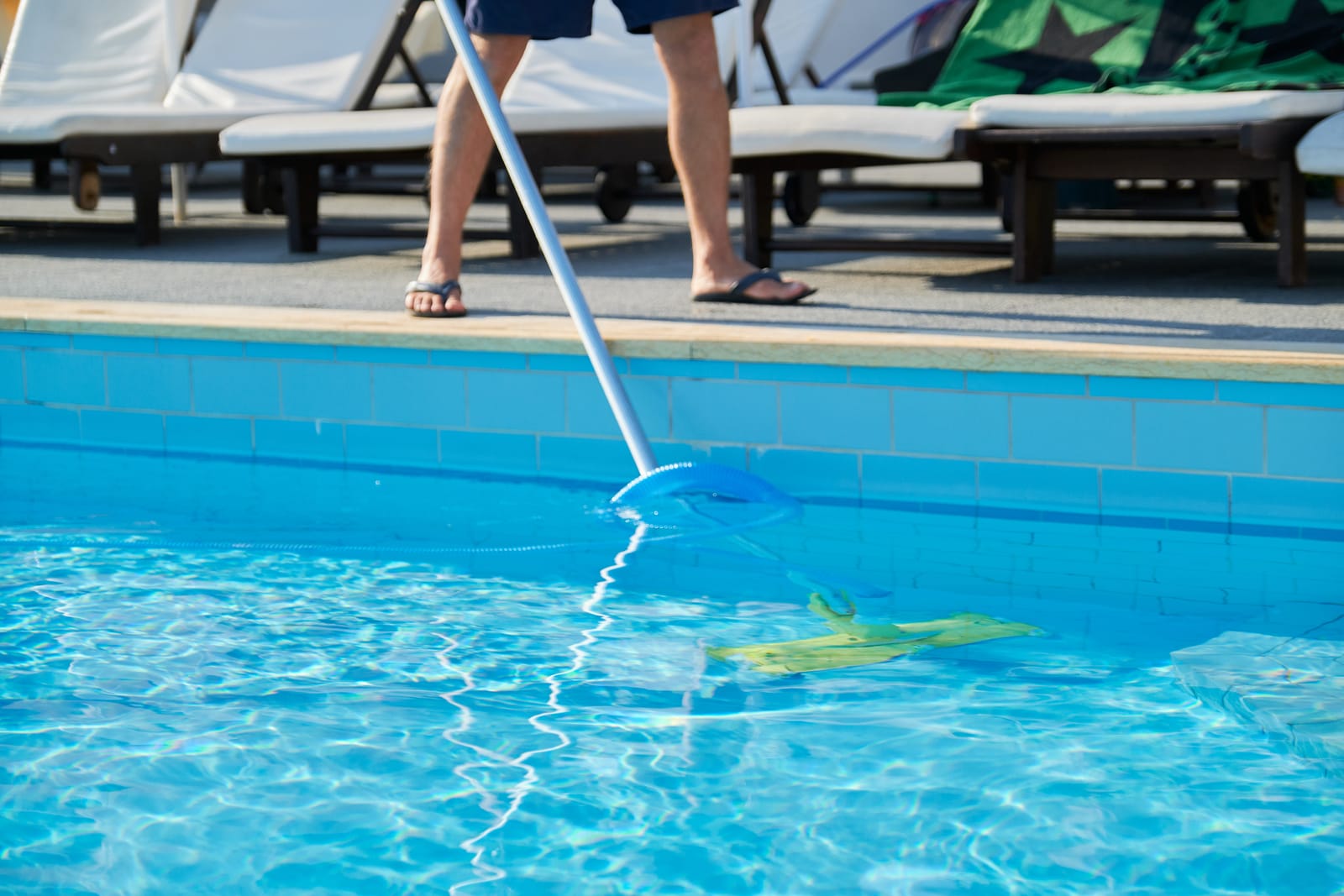Types of Pool Cleaning Services
Keeping your pool clean and well-maintained ensures a safe, enjoyable swimming experience and extends the life of your pool equipment. Whether you're a homeowner with a backyard oasis or a business owner managing a commercial pool, understanding the different types of pool cleaning services can help you make the right choices. In this detailed guide, we’ll break down the key services offered, from routine maintenance to deep cleaning and repairs.
Standard Pool Maintenance Services
Routine Cleaning and Maintenance
Routine cleaning is the foundation of any pool service. It involves:
- Debris Removal: Skimming leaves, dirt, and other debris from the water surface.
- Vacuuming: Using manual or automatic pool vacuums to clean the pool floor.
- Brushing: Scrubbing pool walls and tiles to prevent algae buildup.
- Chemical Balancing: Testing and adjusting the water’s pH, chlorine levels, and total alkalinity to ensure safe swimming conditions.
These services are typically performed weekly or bi-weekly and are essential for maintaining water quality and preventing issues like algae growth and cloudy water.
Filtration System Maintenance
Your pool’s filtration system is critical to keeping the water clean and clear. Maintenance includes:
- Filter Cleaning: Backwashing sand or DE filters or replacing cartridge filters as needed.
- Pump Inspection: Checking for leaks, pressure issues, or reduced water flow.
- Skimmer and Basket Cleaning: Removing debris to prevent clogging and ensure efficient filtration.
Regular filtration system maintenance helps avoid costly repairs and keeps your pool running efficiently.
Deep Cleaning Services
For pools requiring more intensive care, deep cleaning services are available.
Algae Treatment and Removal
Algae can quickly take over a pool if not managed properly. Deep cleaning services include:
- Shock Treatment: Applying high doses of chlorine or other chemicals to kill algae.
- Scrubbing and Vacuuming: Removing dead algae from walls and floors.
- Preventive Measures: Adding algaecides and optimizing chemical levels to prevent regrowth.

Acid Washing
Acid washing is a specialized service for pools with stubborn stains or severe algae issues. It involves draining the pool and applying a diluted acid solution to clean the walls and floor. This service should only be performed by professionals to avoid damaging the pool’s surface.
Tile and Grout Cleaning
Over time, tiles and grout can accumulate calcium deposits and grime. Professional cleaners use specialized tools and chemicals to:
- Restore the original shine of tiles.
- Remove tough stains and buildup.
- Protect against future discoloration.
Repair Services
In addition to cleaning, pool service companies often offer repair solutions.
Equipment Repairs and Replacements
Pool equipment like pumps, heaters, and filters are prone to wear and tear. Common repair services include:
- Fixing leaks in pumps or pipes.
- Replacing broken or inefficient filters.
- Repairing or upgrading pool heaters.
Structural Repairs
Pools can develop cracks, leaks, or damaged tiles over time. Repair services address issues such as:
- Resurfacing cracked or worn pool interiors.
- Fixing leaks to prevent water loss and damage to surrounding areas.
- Repairing damaged coping or tilework.
Automation System Repairs
Modern pools often use automated systems to control pumps, lighting, and water features. Technicians can:
- Diagnose and fix automation software or hardware issues.
- Upgrade outdated systems for improved efficiency.
- Integrate new technology like smartphone controls.
Choosing the Right Pool Cleaning Service
Selecting the best service depends on your pool’s size, type, and specific needs.
Residential Pools
For homeowners, standard maintenance is usually sufficient. Seasonal or one-time deep cleaning might be necessary for:
- Opening the pool at the start of summer.
- Preparing the pool for winter.
- Post-vacation cleanups when pools have been unused.
Commercial Pools
Businesses like hotels and gyms require more intensive services, including:
- Daily or weekly maintenance.
- Compliance with health and safety regulations.
- Specialized cleaning for high-traffic usage.
Evaluating Service Providers
When choosing a pool cleaning company, consider:
- Experience: Look for companies with certified technicians and years of service.
- Insurance: Ensure they carry liability and commercial insurance.
- Customer Reviews: Check online reviews and ratings for reliability and quality.
- Pricing: Compare quotes and consider long-term costs like equipment maintenance.
- Flexibility: Opt for services that align with your schedule and needs.

Pool Cleaning Equipment and Tools
Essential Tools
- Skimmers and Nets: For quick debris removal.
- Vacuum Cleaners: Manual and automatic options for thorough floor cleaning.
- Chemical Test Kits: To monitor pH, chlorine, and alkalinity levels.
Advanced Equipment
- Pressure Washers: For deep cleaning hard surfaces.
- Robotic Cleaners: Automated devices for effortless cleaning.
- Algae Brushes: Designed for scrubbing away stubborn growths.
Maintenance Costs
- Average costs for equipment purchase and replacement.
- Balancing upfront costs with long-term savings from efficient cleaning.
Frequently Asked Questions (FAQs)
How often should I clean my pool?
Weekly cleaning is recommended for most residential pools. High-traffic pools may require daily maintenance.
What are the benefits of professional pool cleaning services?
Professionals ensure proper chemical balance, prevent equipment damage, and save time and effort for pool owners.
How much do pool cleaning services cost?
Costs vary depending on pool size, type, and the specific services required. Average monthly fees range from $100 to $400.
Can I handle pool cleaning myself?
While basic cleaning can be done at home, professional services are recommended for deep cleaning and repairs.
What should I look for in a pool cleaning company?
Check for certifications, insurance, positive reviews, and transparent pricing.
Conclusion
Investing in professional pool cleaning services ensures your pool remains a safe, enjoyable, and long-lasting asset. Whether you need routine maintenance, deep cleaning, or repairs, there are options to suit every pool type and owner’s needs. By selecting a reputable provider and staying consistent with care, you can maximize your pool’s health and longevity.
